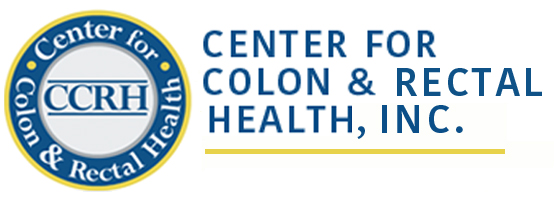Constipation is a frequent symptom for many patients. It is a symptom that has different meanings to different individuals. “Normal bowel movements” are defined as three times a day to three times per week. Constipation is defined as less than three bowel movements a week, compared to diarrhea referring to more than three bowel movements daily. The term “constipation” often is confused with the need to strain or assist in evacuation, which is really outlet obstruction, or the inability to get stool out.
Normal bowel habits are affected by diet and this is why a high fiber “Constipation Diet” is an important part of the treatment. Most constipation is related to slow transit and is remedied by adding both fiber and water daily. Fiber without additional water may actually firm up the stool more. The daily recommended fiber a person needs is between 30 and 35 grams. To give an example, a high fiber cereal may have 5 grams of fiber, so you would have to eat six to seven bowls of cereal to get that much fiber. The physicians at CCRH typically recommend a supplement such as Konsyl, which is over the counter and has 6 grams of fiber, or Konsyl Orange, which has 9 grams of fiber per teaspoon or packet. Other products like Metamucil and Citrucel typically have 3 grams or less per dose.
Medications can often cause constipation. It is important to review the side effect profiles of any medications you are taking. Rarely, however, constipation can be indicative of underlying conditions such as polyps and cancers and therefore, where appropriate, a colonoscopy is recommended.
Refractory constipation often can be treated with stronger medications like Miralax, an over-the-counter stool softener, which is a powder similar to that used in bowel preparations.
True laxatives are to be avoided as these irritate the bowel to force the colon to move stool forward and out. These are medications that your colon can become addicted to, requiring higher and higher doses in order to get the same effect. If you regularly take laxatives, we recommend that you slowly wean off of these as you add stool softeners to your daily regimen.
There is a disease termed “Colonic Inertia” or “Slow Transit Constipation”. This is a condition where the colon cannot actually propel stool forward due to a decrease in the number of nerve endings between the muscle layers of the bowel wall. Unfortunately, true colonic inertia can only be helped with a major surgery. This can be done laparoscopically, but is rarely offered unless all other options have been exhausted. A simple radiologic study can be performed that will accurately diagnose this condition.
Trouble with evacuation (obstructed defecation) is a much more complex problem. This usually is a problem related to the rectum itself or to the muscles and nerves of the pelvic floor. When simple remedies fail, outlet obstruction requires specialized testing (anal manometry, EMG, and defecography) in order to determine the underlying cause. Oftentimes, significant straining to evacuate is a simple disorder of the muscles of the pelvic floor where coordination of these muscles is abnormal and, therefore, getting stool out is difficult.
A rectocele is a herniation (bulge) of the front wall of the rectum into the back wall of the vagina. It is a common finding that is largely asymptomatic and rarely needs surgical repair. A symptomatic rectocele is best diagnosed if evacuation is aided by supporting the rectocele. This includes pressing the rectocele back into the rectum through the vagina during evacuation, or pressing between the rectum and the vagina in order to aid evacuation. There are both medical and surgical treatment options for rectoceles. We recommend a rectocele be treated surgically only if you are having significant symptoms that interfere with your quality of life and have failed medically conservative therapy. Prior to any treatment, there should be a thorough evaluation by your CCRH surgeon to assess whether all of the complaints can be attributed to the presence of a rectocele alone. When a rectocele alone is the problem, it can be fixed quite easily with surgery. Many times, however, a rectocele is a symptom of something bigger. When stool cannot make it out, it gets trapped and pushes forward toward the vagina, stretching out the tissue, creating that pouch.
Other conditions that can cause obstructed defecation or difficult evacuation include rectal prolapse, where the rectum comes all the way out of the anus, or internal rectal prolapse (internal intussusception) where the rectum drops, but not all the way out. This is best treated laparoscopically or robotically by suspending the rectum back into the pelvis or through the rectum where the excess bowel is excised from below.
The Center for Colon & Rectal Health surgeons provide an extensive workup for constipation, which may include colonoscopy, radiologic studies, and pelvic floor studies. Once an accurate diagnosis can be made, a treatment plan can be formulated that will improve the patient’s bowel habits and, therefore, quality of life.
More Information
Our goal is to provide you with a safe and comfortable environment. Every patient is different. We strive to offer you the most accurate and effective treatment options.
Please contact Bucks County’s premier colorectal group to schedule an appointment and to learn more.
St. Mary Medical Center
St. Clare Medical Building, Suite 130
1203 Langhorne-Newtown Road
Langhorne, PA 19047
215-741-4910


